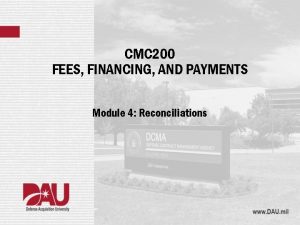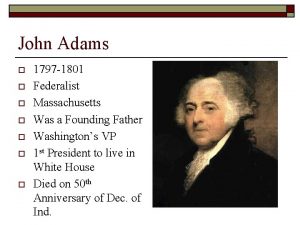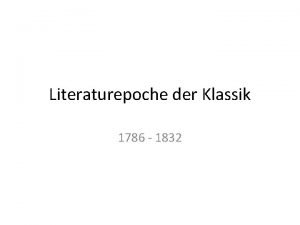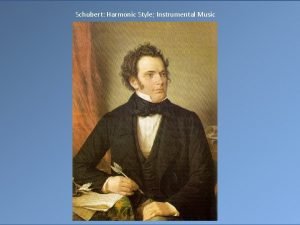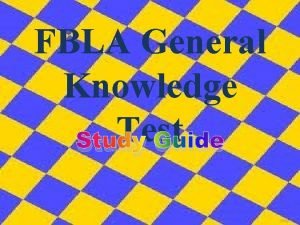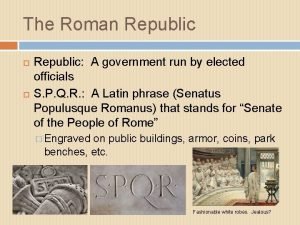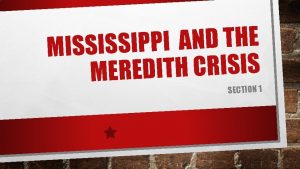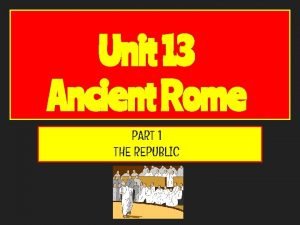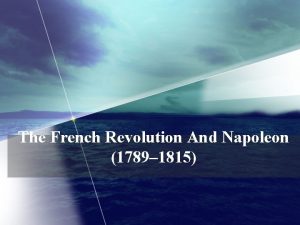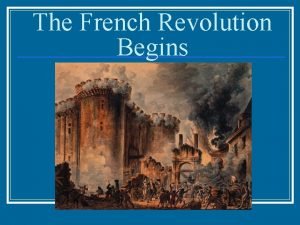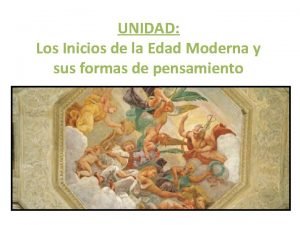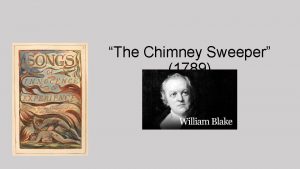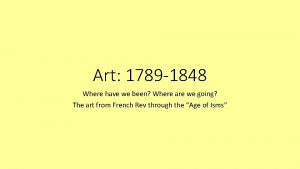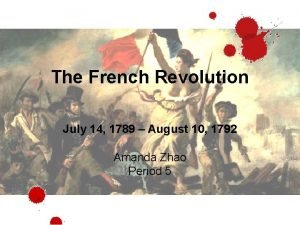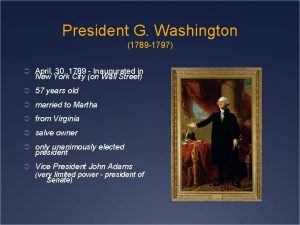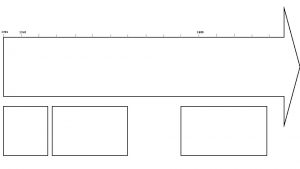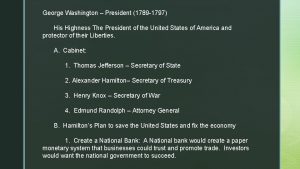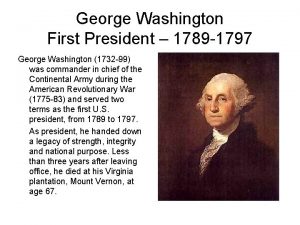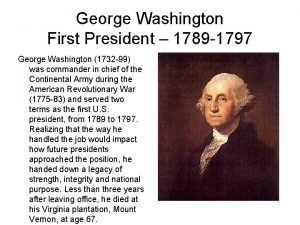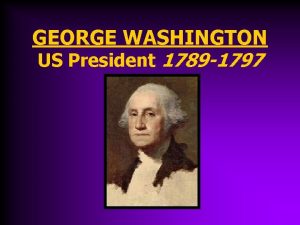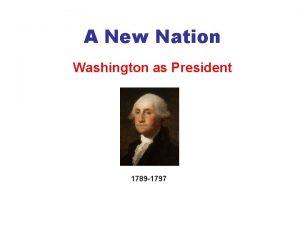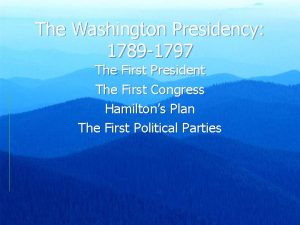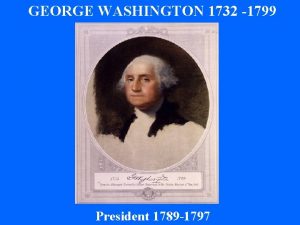MR PRESIDENT Elected Unanimously President from 1789 1797
















- Slides: 16



MR. PRESIDENT • Elected Unanimously • President from 1789 – 1797 • 3 new States will enter the Union • VT (1791), KY (1792), & TN (1796) • Took oath of office on April 30, 1789 in NYC • John Adams would be the VP

ESTABLISHMENT OF THE CABINET • Washington knew he was not the most brilliant man • Appointed men with expertise in areas to become part of the cabinet to ADVISE HIM • Set precedent that each President would have a cabinet, but is not part of the Constitution SECRETARY/STATE -- THOMAS JEFFERSON SECRETARY/TREASURY -- ALEXANDER HAMILTON SECRETARY/WAR -- HENRY KNOX ATTORNEY GENERAL --EDMUND RANDOLPH

DEALING W/ THE DEBT W/ HAMILTON • Report on the Public Credit (1790) plan given to Congress to fix the debt • National gov’t would assume all state debts • Opposed by the Democratic-Republicans • Created a huge debate throughout the nation • Eventually led to a compromise: • Government would assume debt • South would get Washington D. C. as the capital

• BATTLE FOR A wanted NATIONAL BANKa (1790 -1791) Hamilton also to create national bank to handle the monetary needs of the country Problem: Government not given this authority in the Constitution Hamilton used the Elastic Clause to support his views Jefferson strongly opposed Washington approved and the Bank was created in 1791 with a 20 year charter • •

EXCISE TAXES • Hamilton’s main way to raise revenue was through tariffs but also wanted excise taxes • Excise Tax: taxes placed on specific goods produced within a country • In 1791 several excise taxes created • Most notably on Whiskey

WHISKEY REBELLION (PENNSYLVANIA 1794) • Backcountry PA distillers hit hard by 7¢/gallon tax • Whiskey was used as money • “Whiskey Boys” began to harass tax collectors • By 1794 talks of secession had begun • Aug 1794, Washington led the army to put the Rebellion down • Domestic tranquility was ensured

THE STATE deal with problems with DEPARTMENT foreign nations WITH • Britain, Spain, & France JEFFERSON Established the State Department to deal with them • • st 1 Federal Agency established

• Country split on how to feel about this Revolution • D-Rs: pleased • Saw it as an extension of the American Revolution • Federalists: worried • Saw mass hysteria and mob violence as a threat to themselves THE FRENCH REVOLUTION

THE PROBLEM FOR THE U. S. • In 1793, it became a world war being fought between ALL of the major European powers • most importantly Britain who was the main trading partner of U. S. • U. S. still obligated to France because of the Franco. American Alliance of 1778 • D-Rs favored honoring the alliance • Federalists supported Britain

WASHINGTON’S NEUTRALITY PROCLAMATION (1793) Washington believed the country is not militarily prepared to fight another war • • Issued the Neutrality Proclamation saying the U. S. would not choose sides, but would stay out of it (isolationism) • U. S. still traded with both sides

• Britain still occupies forts in Northwest Territory JAY’S TREATY (1794) & menacing U. S. in the Caribbean John Jay sent to London to create a treaty to ease tensions Terms: 1. Britain agrees to leave the forts 2. Britain agrees to pay damages to American ships in the Caribbean 3. Britain refuses to agree to stop harassing the U. S. 4. The U. S. must pay all debts still owed to Britain • •

PINCKNEY’S TREATY (1795) Dealt with Spain Terms: 1. Established a boundary between the U. S. & Spanish Florida 2. Allowed the U. S. free navigation rights of Mississippi River 3. Allowed the U. S. the use of the port of New Orleans • •

HIS FAREWELL ADDRESS (1796) • After 2 terms Washington refused a third term Wrote a letter to the American public to say goodbye 2 important ideas included: 1. End Partisanship – there should be NO political parties 2. Warned against permanent foreign alliances • •

WASHINGTON’S PRECEDENTS 1. Have Advisors & form a Cabinet 2. Executive can choose his own Cabinet 3. Two-term Limit for Presidents - not broken until FDR in 1940 No permanent alliances - not broken until 1949 NATO 4.
 1797 - 1789
1797 - 1789 Dcma etools
Dcma etools John adams 1797-1801
John adams 1797-1801 Balladen weimarer klassik merkmale
Balladen weimarer klassik merkmale 1828-1797
1828-1797 What was the first fbla state chapter
What was the first fbla state chapter An elected official in rome
An elected official in rome Simple definition for democracy
Simple definition for democracy When and why was ross barnett elected governor?
When and why was ross barnett elected governor? Elected only by plebeians, veto power, 1 year term
Elected only by plebeians, veto power, 1 year term President vice president treasurer secretary
President vice president treasurer secretary Napoleon 1789
Napoleon 1789 French political cartoon 1789
French political cartoon 1789 Línea del tiempo de las edades históricas
Línea del tiempo de las edades históricas The chimney sweeper 1794
The chimney sweeper 1794 Art 1789
Art 1789 July 14 1789
July 14 1789

